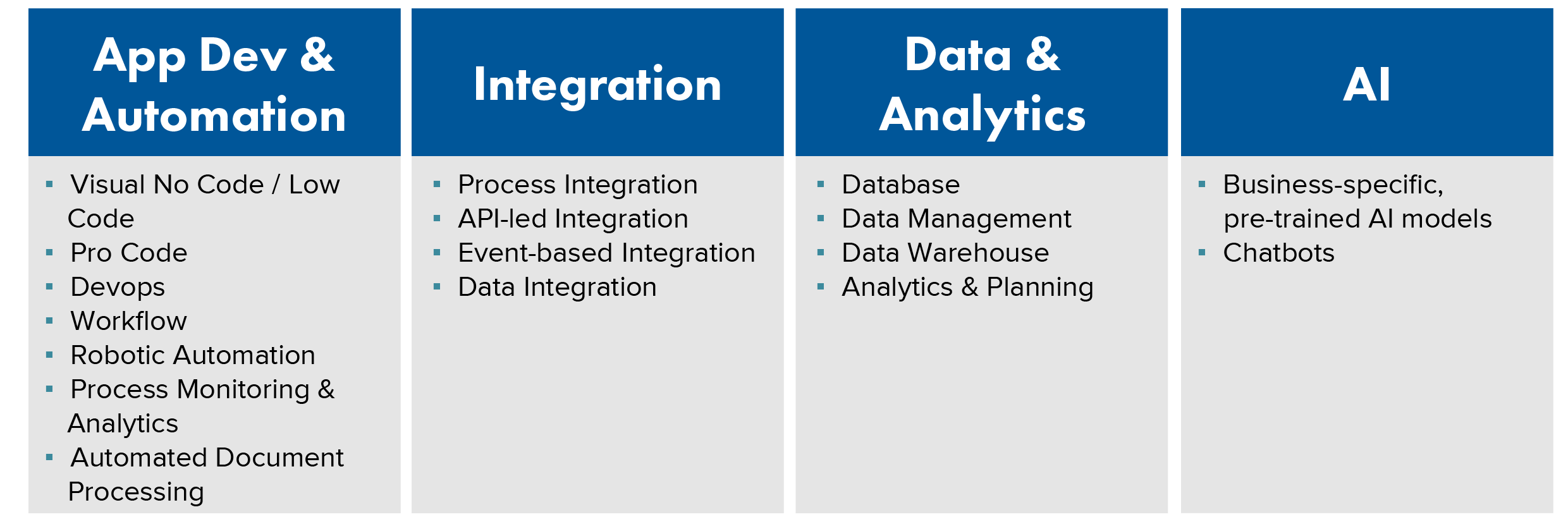Exploring the Key Capabilities of SAP Business Technology Platform (BTP)
SAP ERP is the backbone of many companies to run their day-to-day mission-critical processes. Several companies have customized the core extensively to enhance their operations and provide company- or industry-specific business process extensions. However, this creates a huge technical debt and makes the continuous upgrade to the latest version very difficult and, in several cases, impossible. The need to digitize and transform business processes with agility is critical to be able to compete in today’s business environment. To enhance the entire value chain, companies need to be able to connect SAP and non-SAP applications, data, and processes across on-prem and multi-cloud hybrid landscape. SAP Business Technology Platform (BTP) provides the technological foundation to be agile and innovative, enabling organizations to quickly adapt to changing market conditions and customer demands. Below, we unpack the key capabilities of SAP BTP.
What is SAP Business Technology Platform (BTP)?
SAP BTP brings together application development, automation, data management, analytics and planning, integration, and AI into one unified cloud environment. SAP BTP can be considered Platform as a Service (PaaS) for development, automation, and integration, meaning SAP handles the technological complexities so that you can focus on building extensions and connected solutions. SAP BTP provides capabilities in four key categories:

App Development and Automation: One of the major goals when implementing a modern SAP S/4HANA system is to keep the core clean – this means keeping the enhancement and extensions outside the core ERP by using side-by extension in SAP BTP and reducing the technical debt. This allows for an easy upgrade to the latest version and keep the software current and adopt the latest innovations in the core. SAP provides No code/Low code and professional developer tools to extend and build fully connected apps and cloud-native apps. Using open APIs, SAP Build automation provides tools to create automated workflow processes and tasks with simple drag-and-drop development, including pre-built workflows, bots, and connectors for SAP and non-SAP systems.
Integration: Integration is essential to enhance business operations across the entire value chain by connecting SAP and non-SAP systems seamlessly. SAP Cloud Integration Suite provides process integration, event mesh, and data integration. The SAP API Hub provides access to more than 2,000 pre-configured integration packs that accelerate the development time.
Data & Analytics: SAP offers a unified analytics platform that includes planning and predictive forecasting capabilities. This is important, as organizations need to be able to visualize data across SAP, non-SAP systems, and external cloud services SAP BTP provides SAP Analytics Cloud, SAP Datasphere, and SAP Data Intelligence Cloud. SAP Analytics Cloud offers AI-driven analytics using natural language processing technology from Askdata, which SAP acquired in 2022. SAP Datasphere is the next generation of SAP Data Warehouse Cloud. It provides a direct line to mission-critical business data and metadata – keeping the business context and logic – from SAP applications. Recently, SAP and Google have partnered to provide integration between SAP Datasphere and Google Cloud BigQuery, which will allow customers to access their most critical data in real time without data duplication. SAP Data Intelligence Cloud is a comprehensive data management solution and allows you to build the data fabric layer by discover, catalog, and connect data from disparate data sources.
Artificial Intelligence: SAP BTP’s pre-trained and custom AI models empower businesses to solve their most pressing challenges and achieve their business goals. You can use AI-powered algorithms to analyze data, detect patterns, and make predictions, thereby driving more accurate forecasting, personalized customer experiences, and proactive decision-making. Machine learning capabilities can also be utilized for automating repetitive tasks and optimizing business processes. For example, SAP is building generative AI capabilities in SAP BTP to help businesses improve developer experience, integration development, process automation, analytics, administrative tasks, and more. SAP BTP applications can use any LLM or similarly powerful tool available as a service.
SAP BTP for Your Business
SAP BTP provides a unique and powerful technology platform for SAP ERP customers, offering a wide range of services that are tightly integrated with business processes, SAP data, and third-party data sources. This platform enables customers to create an agile layer of innovation, accelerating their digital transformation and driving business success.
Interested in learning more? Connect with one of our SAP experts today.



